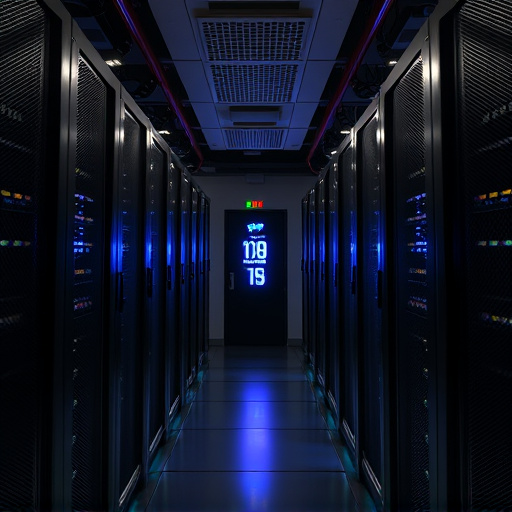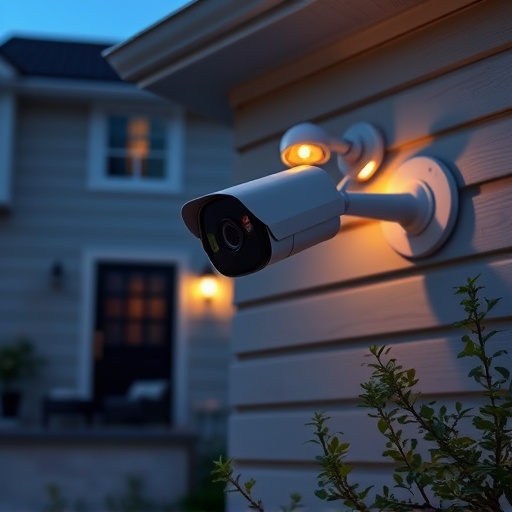AI Revolutionizes Pittsburgh’s Security Camera Systems: Benefits and Ethics
AI-powered security camera systems are transforming surveillance in Pittsburgh, PA, offering improve…….
In today’s world, security camera systems have become an indispensable tool for businesses, governments, and individuals alike. Among the many cities benefitting from this technology, Pittsburgh, Pennsylvania, stands out for its proactive approach to public safety and surveillance. This article delves into the intricacies of security camera systems in Pittsburgh, exploring their definition, global impact, economic implications, technological innovations, regulatory framework, challenges, successful implementations, and future prospects. By the end, readers will gain a comprehensive understanding of this crucial aspect of modern urban life.
A security camera system in Pittsburgh, or anywhere else, refers to an integrated network of surveillance cameras designed to monitor and record activities for security purposes. Core components include:
The use of surveillance cameras in Pittsburgh, like many other cities, evolved from a need to combat rising crime rates and enhance public safety. The first security cameras emerged in the 1960s as analog devices, primarily used in banks and high-security areas. Over time, technology advanced, leading to cheaper, more accessible, and higher-resolution cameras suitable for diverse applications.
Today, security camera systems are ubiquitous, found in businesses, public spaces, residential areas, and critical infrastructure. In Pittsburgh, these systems play a pivotal role in:
The global security camera market is a multi-billion dollar industry, with Pittsburgh contributing as both a manufacturer and user of these systems. Key international trends shaping the market include:
The impact of security camera systems varies across regions due to factors like economic development, public safety priorities, and privacy regulations:
The global security camera market is characterized by:
Security camera system investments are influenced by:
The economic impact of security camera systems is multifaceted:
Security camera technology has seen significant advancements in:
These advancements have transformed surveillance capabilities by:
Future developments in security camera technology include:
Security camera systems operate within a framework of laws and regulations that vary by region:
Policies and regulations impact security camera systems in several ways:
Despite its benefits, security camera systems face several challenges:
Addressing these challenges involves:
Overview: The City of Pittsburgh partnered with technology companies to deploy a comprehensive security camera system as part of its smart city initiative.
Challenges Addressed: Improved public safety, reduced crime, and optimized traffic flow in the city center.
Implementation Details:
Outcomes:
Client: A major retail chain operating multiple stores in the Pittsburgh area.
Objective: Implement a robust security camera system to deter theft, monitor staff performance, and protect inventory.
Solution:
Benefits:
Future developments in security camera systems will be driven by:
Security camera systems will continue to grow in:
To capitalize on these trends, businesses and governments should:
Security camera systems in Pittsburgh, PA, represent a dynamic and evolving field that plays a crucial role in enhancing public safety, securing critical infrastructure, and optimizing urban operations. From the initial analog cameras to today’s advanced AI-powered systems, technology has revolutionized surveillance capabilities. As cities continue to grow and digital connectivity expands, security camera systems will adapt and grow with them, presenting both opportunities and challenges.
By embracing technological advancements, staying informed about policy developments, and prioritizing data security, Pittsburgh can maintain its position as a leader in smart city initiatives while ensuring the privacy and safety of its residents. The future of security camera systems lies in their ability to integrate seamlessly into our daily lives, providing enhanced security without compromising personal freedoms.
Security cameras protect privacy through strong encryption for data transmission and storage, access controls to limit who can view footage, and anonymization techniques to remove personally identifiable information when possible.
Yes, AI algorithms can inadvertently perpetuate biases present in their training data. This can lead to inaccurate or unfair decisions, such as misidentifying individuals or overestimating threat levels based on biased criteria.
When selecting a system, consider your specific needs (e.g., area coverage, resolution, access control), budget, and future growth plans. Consult with professionals, review case studies, and assess vendors’ expertise and customer support to make an informed decision.
Yes, most jurisdictions have regulations dictating where and how security cameras can be used in public spaces. These rules typically include requirements for notice, consent, and limited access to camera feeds to protect individual privacy rights.
The high-speed and low-latency nature of 5G networks enables faster data transmission, supporting real-time analytics and more responsive surveillance. This enhances the overall performance and efficiency of security camera systems, allowing for advanced applications like predictive analytics and enhanced object detection.

AI-powered security camera systems are transforming surveillance in Pittsburgh, PA, offering improve…….

In Pittsburgh, robust Security Camera Systems are vital for apartment complexes to combat rising cri…….